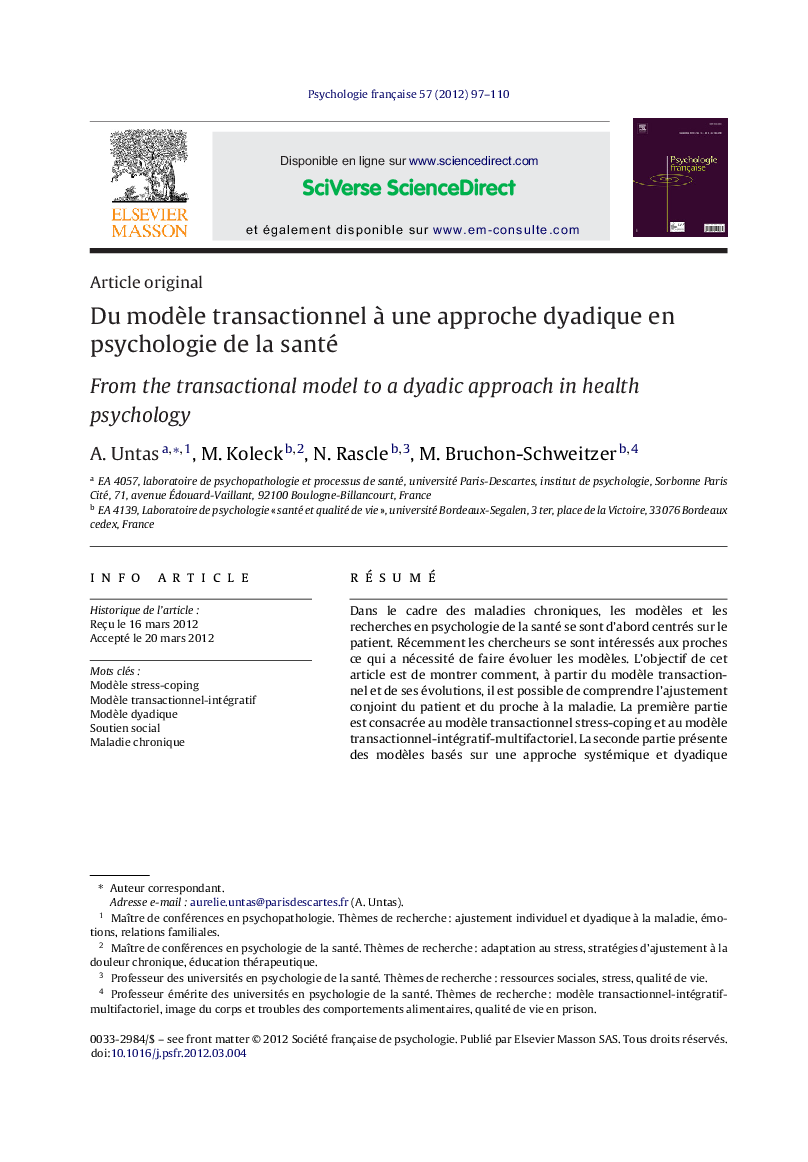| Article ID | Journal | Published Year | Pages | File Type |
|---|---|---|---|---|
| 337044 | Psychologie Franaise | 2012 | 14 Pages |
RésuméDans le cadre des maladies chroniques, les modèles et les recherches en psychologie de la santé se sont d’abord centrés sur le patient. Récemment les chercheurs se sont intéressés aux proches ce qui a nécessité de faire évoluer les modèles. L’objectif de cet article est de montrer comment, à partir du modèle transactionnel et de ses évolutions, il est possible de comprendre l’ajustement conjoint du patient et du proche à la maladie. La première partie est consacrée au modèle transactionnel stress-coping et au modèle transactionnel-intégratif-multifactoriel. La seconde partie présente des modèles basés sur une approche systémique et dyadique permettant une prise en compte plus complète dans l’ajustement des patients et des proches à une maladie chronique.
In the context of chronic disease, models and studies in health psychology have first focused on the patients’ adjustment. Research conducted with the Transactional Model of Stress and Coping (Lazarus and Folkman, 1984) and the Transactional Integrative and Multifactorial Model (Bruchon-Schweitzer, 2002) have shown that individuals’ social relations, and especially family support, are associated to patients’ outcomes. Recently, studies have taken more attention to the “significant others”, most often the partners. In fact, relatives are also affected indirectly by the disease and its changes on daily life. Moreover, they often play a crucial role by helping the patient to face the disease. These models are focused on the individual and are not relevant to study dyads. An evolution of these models can be proposed by integrating a systemic and dyadic approach. In fact, the way the patient and the relative face the disease, the quality of their relation but also the way they face the disease together, as a dyad, have to be considered. The first part of this article presents the Transactional Model of Stress and Coping and the Transactional Integrative and Multifactorial Model and their evolutions. The second part shows how it is possible to develop a dyadic approach based on these models. It presents the Family System-Illness Model (Rolland, 1987), the Developmental-Contextual Model of couples coping with chronic illness across the adult life span (Berg and Upchurch, 2007) and a Systemic and Transactional Model of Dyads, which help to take more completely into account the adjustment processes of patients and relatives to a chronic illness.
